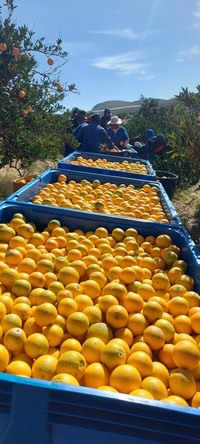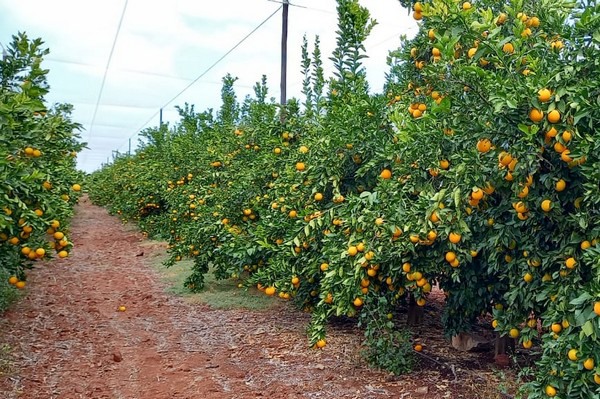The European Commission has adopted a regulation which forces South Africa and it’s neighbouring countries to a very strict cold sterilization regime for oranges prior to and during transportation. This decision has far-reaching consequences for the organic growers where OTC Organics, organic distributor of organic fruit and vegetables, has been working with for years.
This treatment applies to all arrivals of oranges (both conventional and organic) from approximately July 13th, while the citrus season started last week and the first containers have arrived in the Netherlands and new containers are on their way.
 False Codling Moth (FCM)
False Codling Moth (FCM)
The EU requires the fruit pulp temperature to be maximum 2 degrees at loading at origin to prevent the larvae of False Codling Moth (FCM) to arrive alive in EU posing a threat to EU production. As the orange skin is very sensitive to low temperatures and forced cooling the risk of skin damage is extremely high. Additionally there is no capacity to apply this cooling process at origin.
Edward Out, Managing Director at OTC Organics: “Our organic growers are hit very hard by these measures as they predominantly produce oranges for the European market for decades. Our growers have excellent track records in their orchards on FCM, because of the natural balance in soils the False Codling Moth is almost not existent. And all this without chemicals! To be excluded on this short term from the European organic market, hurts, makes us angry, frustrated and jeopardizes the existence of our growers.”
What to do?
“South Africa will take this case to the World Trade Organisation, but that will take time. We are also looking at certified organic fruit coating to protect the skin from the low temperatures and we are investigating if we can certify the organic farms which are 100% free of FCM for export without cold sterilization. The last option takes time as this process follows strict international phytosanitary standards.”
Edward continues: “Already last year we started, together with colleague companies, to look for an EU certified organic fruit coating which we will start applying on several test shipments of Star Ruby Grapefruit. This fruit (also related to FCM) has to be shipped at 4 degrees which damages the skin in some cases up to 30% of the fruit. Now that times runs out it can be that we consider to coat the oranges as well although this is no guarantee that the fruit is protected against skin breakdown. Of course we will not distribute any fruit which is coated without consulting our customers beforehand.”

“It’s a very harsh decision made in Brussels which will affect many farmers, their families and also will be felt in Europe. For now we roll up our sleeves and try to make the best of it!”, decides Edward.
For more information:
OTC Organics
Email: [email protected]
